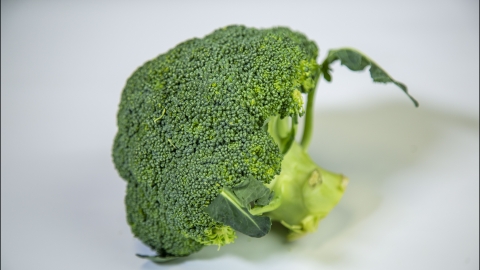Will eating broccoli at night make you gain weight?
Generally speaking, whether eating broccoli at night leads to weight gain depends on the specific amount consumed and the total daily caloric intake. For individuals managing their weight, it is advisable to adjust their diet appropriately according to individual circumstances. The detailed analysis is as follows:

If the portion of broccoli consumed at night is controlled—around 150–200 grams—and prepared using low-fat cooking methods such as steaming or boiling without added oils, and if the total daily calorie intake remains within limits, weight gain typically will not occur. Broccoli is low in calories and rich in dietary fiber, which increases satiety and reduces intake of other high-calorie foods. Additionally, the energy expended during its digestion exceeds the energy it provides, preventing excess calorie accumulation.
However, consuming large amounts of broccoli at night, or using excessive cooking oil, mayonnaise, or salad dressings during preparation—which significantly increase the calorie content per serving—or already having consumed many high-calorie foods throughout the day, leading to a total caloric intake far exceeding energy expenditure, could result in weight gain. Even low-calorie foods, when eaten in excess, can contribute to an overall calorie surplus that may be stored as body fat, potentially causing weight gain over time.
When eating broccoli at night, it is recommended to use light cooking methods and avoid dishes high in oil or salt. Portion control is important; do not overconsume simply because it is low in calories. Pairing it with moderate amounts of high-quality protein sources such as chicken breast or tofu helps maintain balanced nutrition. If daily caloric intake has already exceeded requirements, consider reducing the amount of broccoli consumed or opting for even more easily digestible vegetables, ensuring smooth digestion at night and avoiding adverse effects on body weight.




